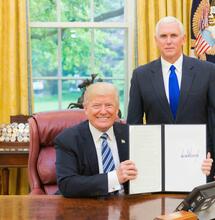Does legalising recreational cannabis violate international drug treaties?

According to the United Nation’s International Narcotics Control Board (INCB), adult-use legalisation is indeed in breach of international arrangements and they have regularly criticised cannabis reform over the years. Hemp and CBD are commonly accepted, but the same cannot be said for the recreational use of cannabis.
The Single Convention on Narcotics Drugs of 1961, defines cannabis as “the flowering or fruiting tops of the cannabis plant”. The convention does not consider specific parts of Cannabis sativa seeds or leaves as controlled substances. Following this, as long as the ‘approved’ parts of the plant are not being used in conjunction with the ‘unapproved’ ones, there’s nothing wrong with the manufacturing and use of cannabis-based products. This could help explain why CBD cosmetics for example are so acceptable internationally.
Does Recreational Use Violate Other International Drug Treaties?
The UN has objected to cannabis reform ever since Alaska, Oregon and Washington D.C. legalised recreational cannabis in 2014. The INCB has repeated over the years that U.S. cannabis legalisation is out of line with three international drug treaties.
The UN body reiterated its position in its 2023 report stating that the federal government was not compliant because it was passively permitting states to enact adult-use marijuana legalisation.
The UN's position was reaffirmed once again this year. The reason is that now Germany has also changed its domestic policy on cannabis. With Germany however, the drug control agency did acknowledge the effort that the German government made to dilute its initial legalisation plan.
“The Board continues to reiterate its concern regarding the legalisation of the use of cannabis for non-medical and non-scientific purposes in several jurisdictions, with other jurisdictions considering similar action.” UN report.
The report states that member nations are required to take any “legislative and administrative measures” to address and punish “the production, manufacture, export, import, distribution of, trade in, use and possession of drugs” such as cannabis under the established treaties.
There are three international drug treaties which the UN body believes may be breached when a country decides to legalise recreational cannabis.
- Single Convention on Narcotics Drugs of 1961
- Convention of Psychotropic Substances 1971
- United Nations Convention Against Illicit Traffic in Narcotic Drugs and Psychotropic Substances of 1988
The 1961 convention aims to limit the possession, use, distribution, commerce and production of drugs exclusively for medicinal and scientific purposes, among other things and is often the most cited argument against the recreational legalization of cannabis.
The psychotropics convention from 1971 applies to the diversification and extension of the spectrum of drugs of abuse, as well as seeking to exercise control over synthetic drugs based on both their potential for abuse and their therapeutic benefit.
The 1988 convention, is designed to work against drug trafficking and money laundering amongst other things.
All three treaties were enacted in the previous century and may look somewhat outdated, however, they do still leave room for member states to adjust their national legislation on drugs accordingly. That flexibility includes the opportunity to end prohibition if required.
In recent developments, the U.S. is to move cannabis to Schedule III of the Controlled Substances Act. Some legal opinions suggest that this would align the U.S. more with its international obligations with the three international treaties. Rescheduling could help the federal government regulate cannabis in a way that protects public safety and health, the number one requirement by international law.
The Treaties provide UN members a chance to re-evaluate the scheduling of substances under their domestic laws based on any new scientific and medical evidence that may be found.
When it comes down to it, aligning with international treaties may not be the biggest challenge of all. Now that the rescheduling of cannabis has moved forward in the U.S.., there will no doubt be many efforts to upset that small success and it is these that would be the source of real worry.
More From Soft Secrets:
What Does German Reform Mean for Europe?
Czech Republic to Follow Germany
Poll Shows Europe Wants Legalisation






